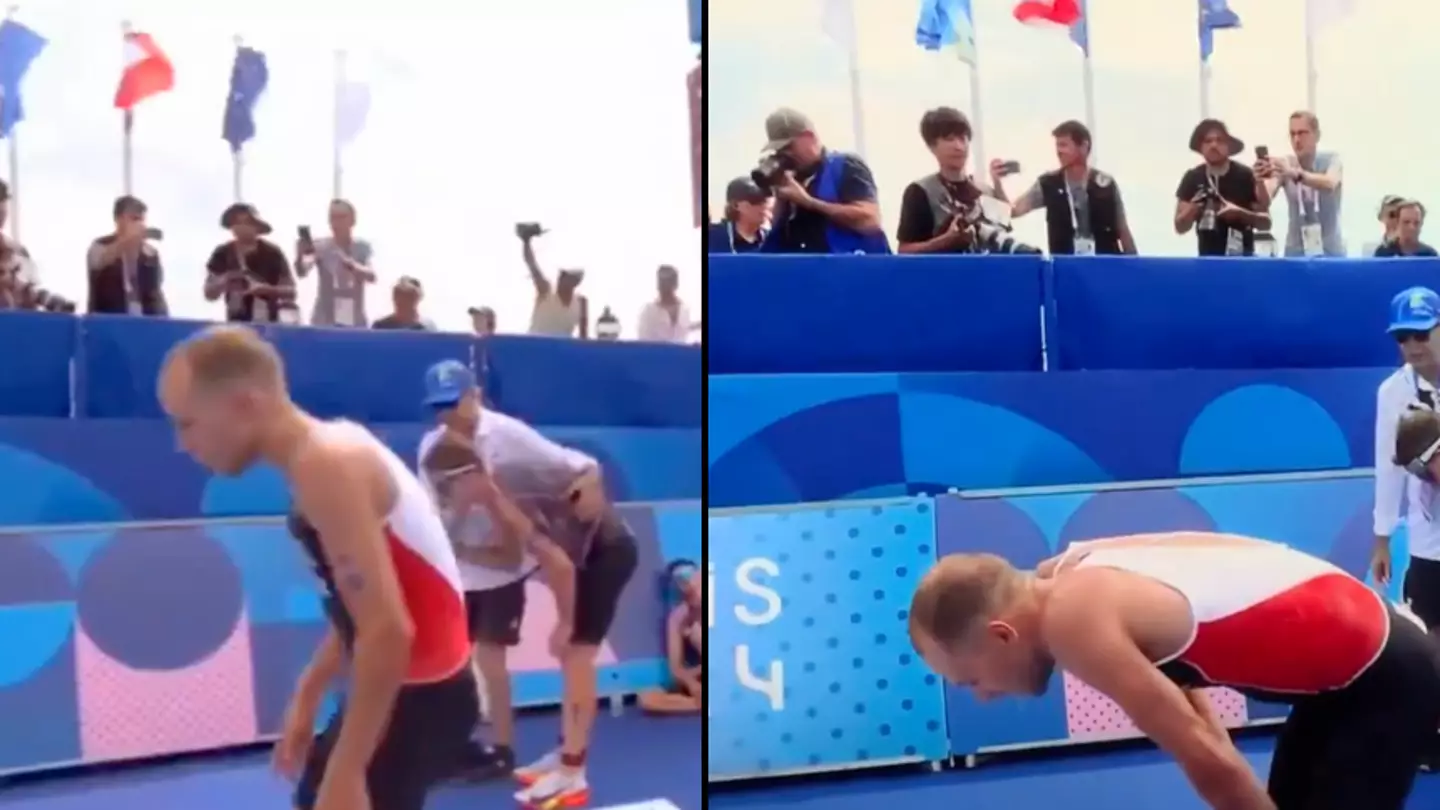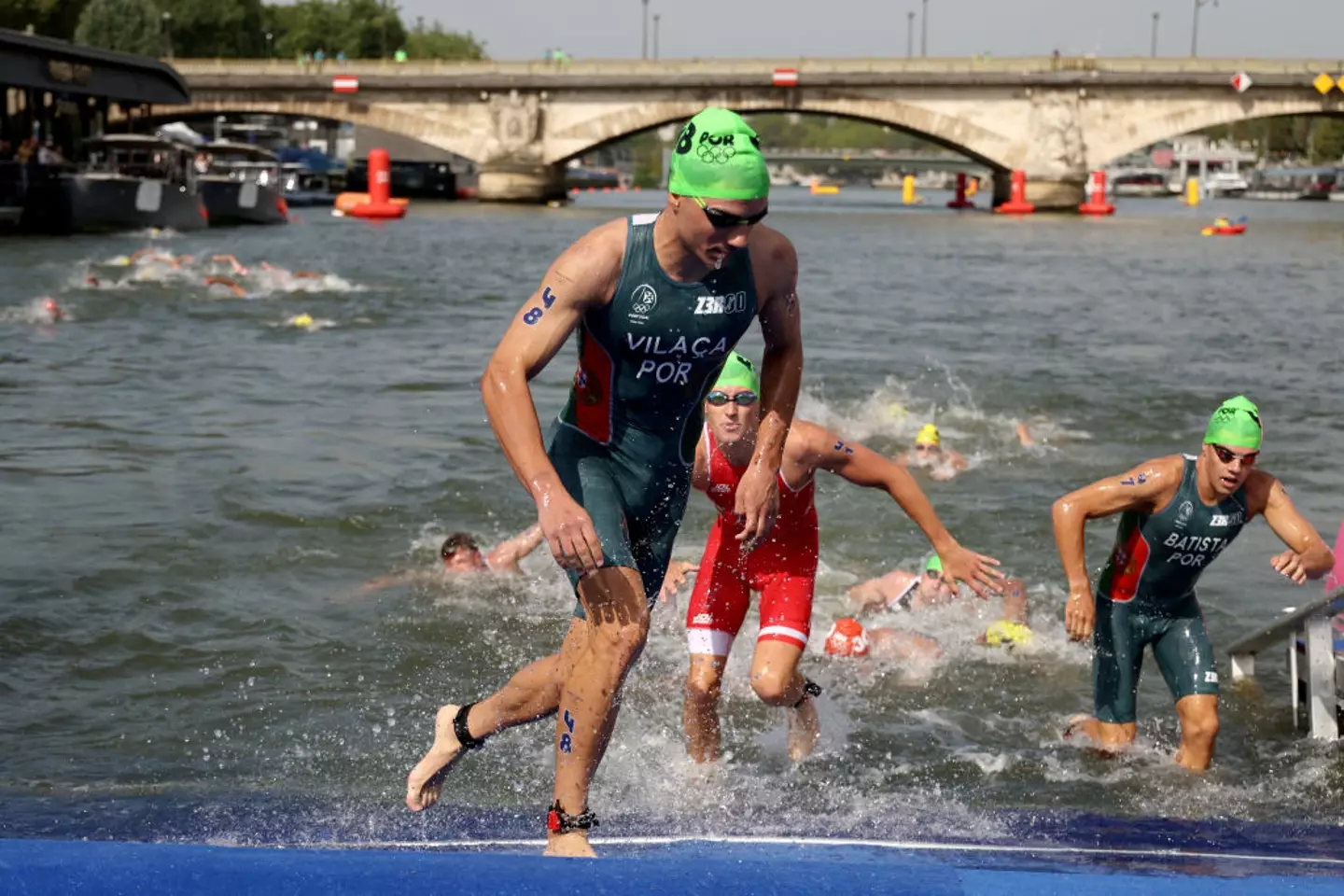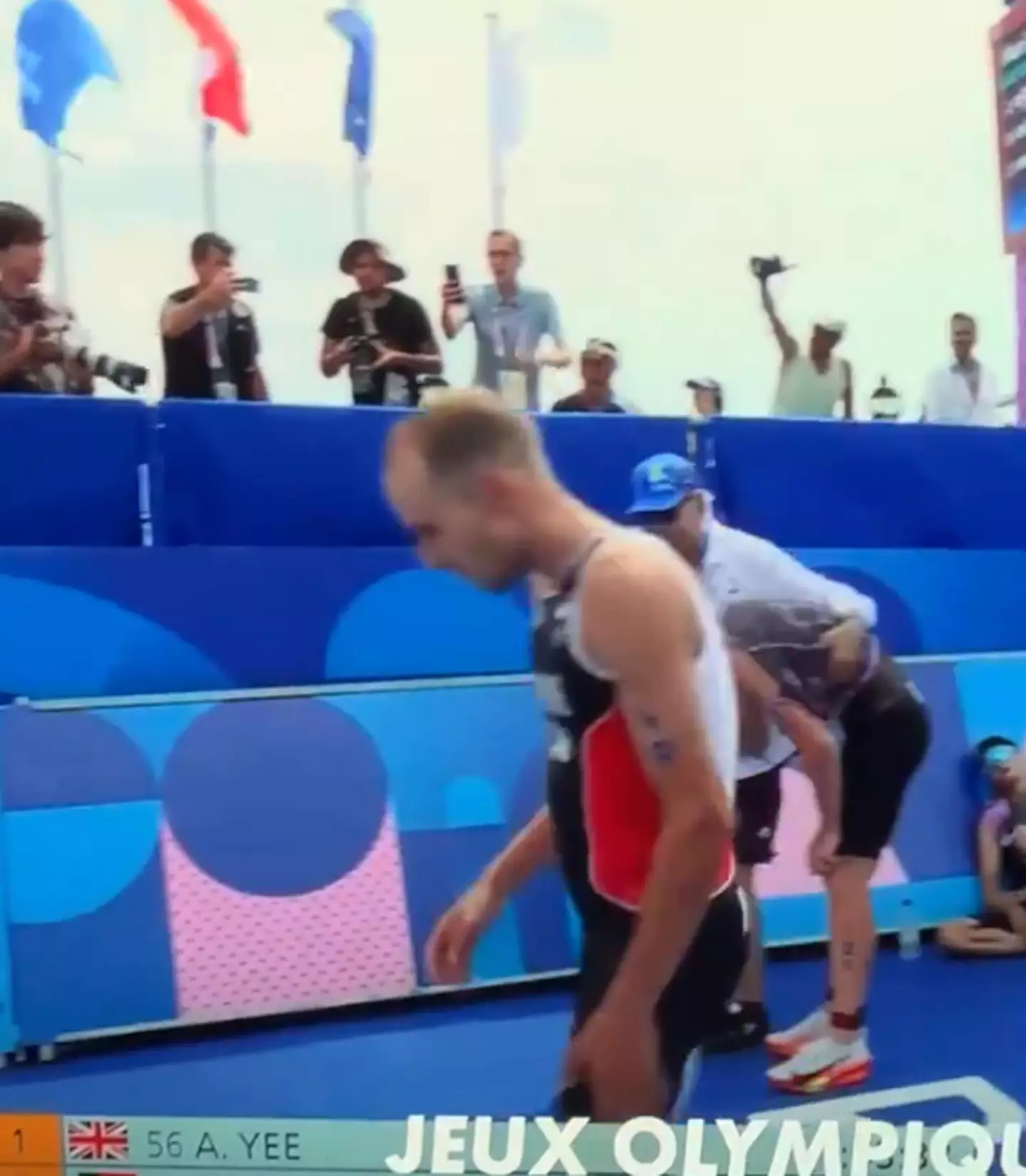
An Olympic athlete has vomited shortly after finishing the men's triathlon in the River Seine.
The event was set to be postponed after officials deemed the water to be 'too polluted' on Tuesday (30 July)
However, on Wednesday morning (31 July), the triathlon event was given the green light to go ahead.
Advert

The French government has spent €1.4 billion (£1.18 billion) trying to transform the Seine into a waterway that wouldn't make athletes sick.
But despite their efforts, the event had to be postponed on Tuesday.
World Triathlon said in a statement: "Following a meeting on water quality held on 30 July at 3.30am attended by Paris 2024, representatives of World Triathlon and their Technical and Medical Delegates, the International Olympic Committee, Météo France, the City of Paris and the Prefecture of the Île-de-France Region involved in carrying out water quality tests, decision has been made to postpone the men’s triathlon event which was due to be held on 30 July at 8am."
The event went ahead on Wednesday morning, but unfortunately, one athlete has become unwell shortly after finishing.
Canada’s Tyler Mislawchuk, 29, stumbled through the finish line before vomiting moments later.
Now, the triathlon is a pretty intense event - including a 1.5km swim, 40km bike ride, and 10km run - so it could be that Mislawchuk became unwell as a result of competing, especially in the heat.
Advert
But with tongues wagging about the Seine - and concerns over safety - it certainly doesn't help with the mounting speculation.
One athlete even said he had resorted to not washing his hands in order to build up his immunity ahead of the event.
"In preparation for this race, I knew there was going to be some E.coli exposure. So I’ve been trying to increase my E.coli threshold by exposing myself to a bit of E.coli in day-to-day life," said USA's Seth Rider.

Experts have spoken about what could happen if athletes swim in unsafe water.
Advert
According to The Conversation, triathlon athletes could 'suffer gastrointestinal symptoms, eye and skin infections and respiratory illnesses'.
"The risk to athletes is heightened by suppressed immune systems, which can result from intensive competition and training," wrote Jamie Wilks, PhD candidate in Sports Ecology, and Lois Mougin, PhD candidate in Exercise and Environmental Physiology at Loughborough University.
"The Vaires-sur-Marne, east of Paris, is hosting the rowing competitions at least provides an alternative venue to the Seine.
Advert
"Extreme weather threatens the water quality of the Seine and its ability to host a safe Olympic Games.
"Athletes, event organisers and team managers must cooperate to limit the health risk, uphold the integrity of this Olympic discipline and prevent a crap experience for competitors."
Topics: Health, Olympics, World News
